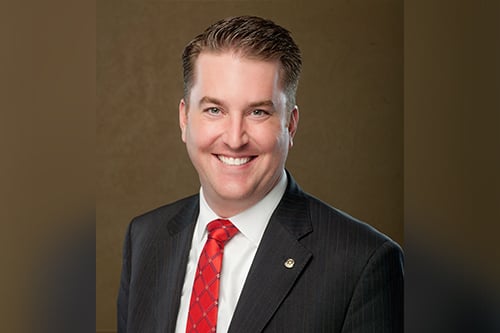In part 1 of a new series, expert shares the big trends shaping the mortgage business

After a year of tumult, change, trend acceleration, and endless ‘pivoting,’ it’s time to take stock for a moment and think about what we’ve learned. The whole mortgage industry has been tested by 2020 and while we’ve seen surprising bright spots despite a gloomier economic picture, mortgage professionals should take the time to think on what we’ve learned and how the circumstances of 2020 will inform the industry into 2021 and beyond.
With that in mind, MPA spoke with John G. Stevens (pictured), chief revenue officer at SRE Mortgage Alliance Inc. Stevens, an industry veteran who’s made his reputation by thinking about the future, shared the three big forces that he believes are already changing the mortgage industry. They are increasing role flexibility and the rise of dual-role real estate and mortgage professionals, the limitations of refinancing and the need for a purchase-centered approach, and a growing need to integrate human contact in a tech-enabled market.
In part one of this series, Stevens explains why he sees the fundamental roles of the mortgage originator and real estate brokers changing in the future as clients come to expect a deeper, more holistic service. At SRE Mortgage Alliance, Stevens says they’ve already moved to create this holistic role in the form of a “Real Property Advisor™.”
“The role of the real estate professional not only has needed to change, it has been forced to change,” he said. “Real estate brokers and loan originators, with the condensing of the market, need to be able to fill both roles. That’s the Real Property Advisor™ (RPA) an individual who is dually licensed. They have their education to be both a real estate broker as well as a loan originator and can serve a client that needs both.”
Stevens notes that the modern client, who can do so much research and shopping online before they make human contact, needs someone who can provide a holistic service when they do reach out. The RPA can be that touchstone throughout the process, rather than two or more players handing the client off between them.
Read more: Non-QM still gaining strength
This role consolidation and holistic service, Stevens believes, mirrors how stockbrokers have become financial advisors over the last two decades. As tech innovations and access to information meant stockbrokers weren’t adding as much value as they used to, they pivoted to a more holistic service and grew their businesses accordingly. Stevens believes that as so much of the mortgage and real estate industry has been digitized and automated, moving into the dual role RPA will mean an originator or a real estate professional is set up to deliver a new kind of holistic service.
The goal, Stevens stresses, is to preserve and maintain the client relationship. Carrying a client through the shopping, purchase, and mortgage process, accurately informing them along the way, means you own that relationship in its entirety. It means the RPA can become the single point of contact for all a client’s real estate needs.
Stevens said that originators interested in becoming RPAs should contact SRE Mortgage Alliance to learn how they’ve already started rolling out this role. Education, too, is key. Originators looking to become RPAs need to start studying towards a real estate license; real estate professionals need to learn how to become a licensed originator. With that dual education, Stevens says an RPA will be ready for the next set of changes to hit the industry.
Read more: QuestSoft launches tool for prequalification compliance review
“If you’re an RPA, every question I have as a consumer, every concern, every happy moment I have, I’m contacting you,” Stevens said. “As a Real Property Advisor, you are maintaining that relationship all the way through to the end, because you are a licensed, educated real estate agent, as well as a loan originator. And then when it comes time to refinance, I’m going to call you again, not somebody else. When it comes time to purchase another home, I’ll be calling you. I see this as a forced evolution of our industry that a professional will adapt to and thrive in.”



